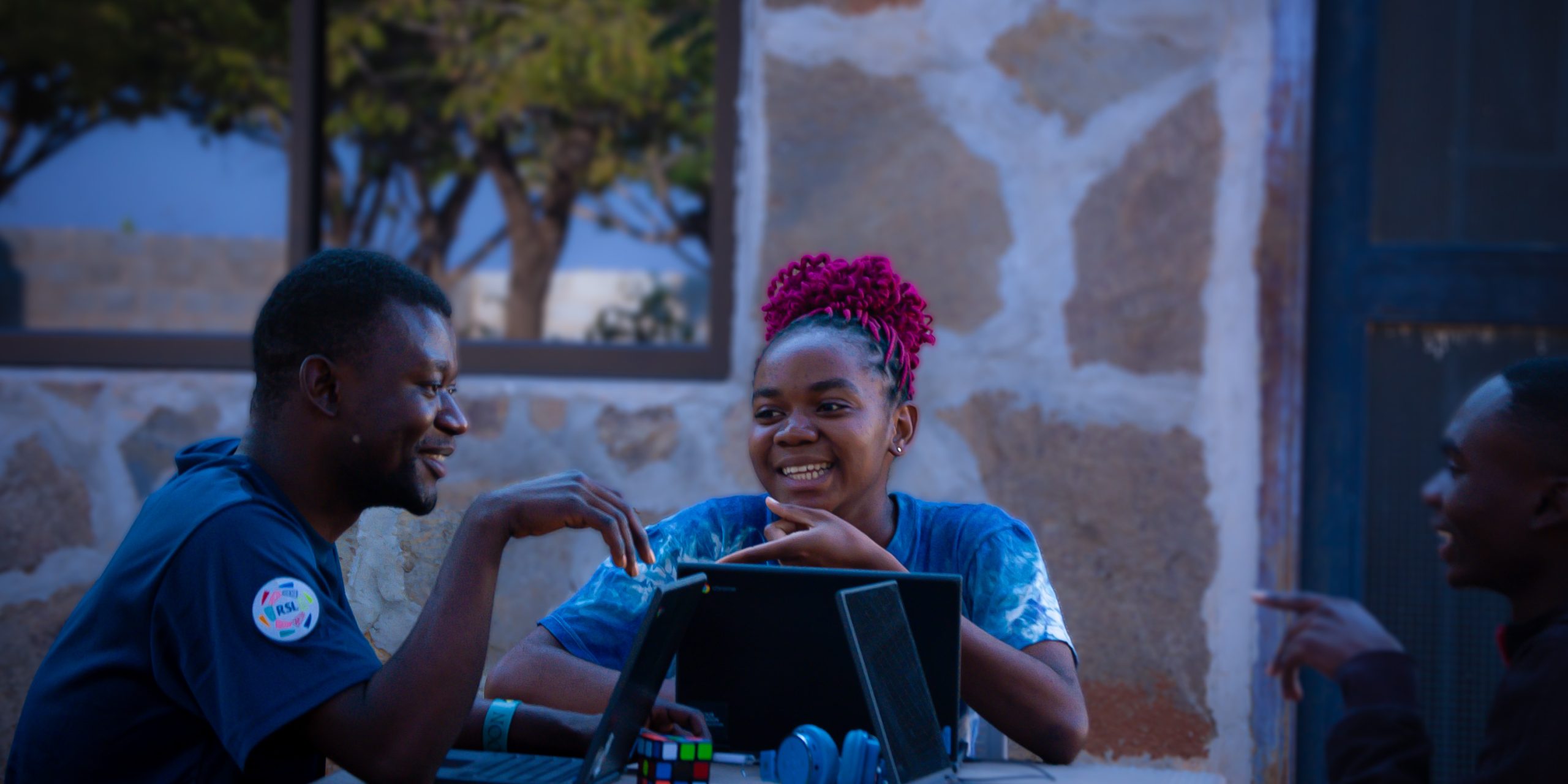Tiwonge is one of Our Moon’s new student recruits. Here she talks about her desire to combat the taboos around mental health in Zambia.
“Like many Zambians, I grew up in a society where talking about feelings was not encouraged. As a child I saw this to be normal but, as I read more books and watched international movies, I noticed that other countries treat depression, anxiety and stress as real disorders and give people the required attention. With access to therapists as neutral third parties, they have a chance to talk about their problems and receive professional advice.
Finding this out gave me a new perspective, a new hope. It never made sense to me that we do not give mental health problems in Zambia adequate attention. These problems never felt normal, so why should they be normalised? This sparked a new interest and I began to research the mental health facilities in Zambia. To my disappointment I only found one in Lusaka: Chinama hospital. This facility, however, is not a mental health care facility you can walk into for help simply because you are stressed, it is a place you are taken to when you are considered insane and a danger to the public and yourself – only the effects and not the causes are given attention.

Mental health problems can cause people to alienate themselves from their peers because of perceived unattractive personality traits or behaviours. I noticed this in myself and others. When I do not feel okay, my natural response is to isolate myself from others rather than seek help and this is normal because we are raised to believe strong people do not ask for help. This is a toxic belief that especially affects men. As the Nyanja saying goes, “mwamuna sama lila”- which means a man does not cry. This is a mentality imposed on men with the intention of making them strong, that stops them from expressing their feelings. When feelings are not properly dealt with, they manifest themselves in uglier ways, such as drug and alcohol abuse, low self-esteem and anger issues.
When I do not feel okay, my natural response is to isolate myself from others rather than seek help and this is normal because we are raised to believe strong people do not ask for help.
Many countries have only recently addressed the topic of mental health. Zambia, however, is doing very little to acknowledge and provide solutions to mental health problems. This can be expected from a country where talking about relationship issues is a taboo, bullying is considered part of growth and complaining about academic work stress means you are lazy. We have a tradition that teaches us that respecting elders is allowing them to disrespect us and we are raised to fear parents rather than be free enough to open up to them. Evidently, creating mental health awareness in this country would require people to unlearn the habits and behaviours that have been developed over many decades – a challenge not many people are up for.
The pursuit of careers that deal with mental health is discouraged in Zambia due to the perceived lack of jobs in the sector. Regardless, I plan to study psychology in order to build capacity in mental health. I want to create an environment where people are free to talk about matters affecting them, so that the next generation can grow up in a different Zambia from the one I did. It’s difficult, but not impossible.”
For more information about Our Moon’s work, please contact helen.leale-green@ourmoon.org.uk



Indeed… The truth in this article… Continue spreading awareness…. Am proud of you Tiwonge????
I recently attended a poetry show that addressed mental health. It is saddening how talking about feelings, mostly for men, is seen as a taboo. I hope that as we move forward, many more people will acknowledge mental health as something they should take seriously.
I would love to actively support this 100%. Mental health really cardinal. If only people would give it the attention it truly deserves, so many sad stories would be unheard of.
This truly is an issue to address, maybe then the rates of suicide will be reduced because it is lack of mental health care that people commit it, it because of the norms society has placed on men that has resulted to 75% of suicide cases are being that of men. Suicide is technically as a result of norms society has placed and indeed with your work the next generation won’t have to grow up in societies we did.
Nice blog. It’s nice to know that people are aspiring to reach out to humanity’s isolated groups. Although, I couldn’t help but notice the optimism?. It’s good, it’s where we all start after all. Hope you’re willing to do the ‘dirty’ work and put in much more research and study hours than the usual psychiatrist. Only then can you really make a difference and achieve what they haven’t. All the best.